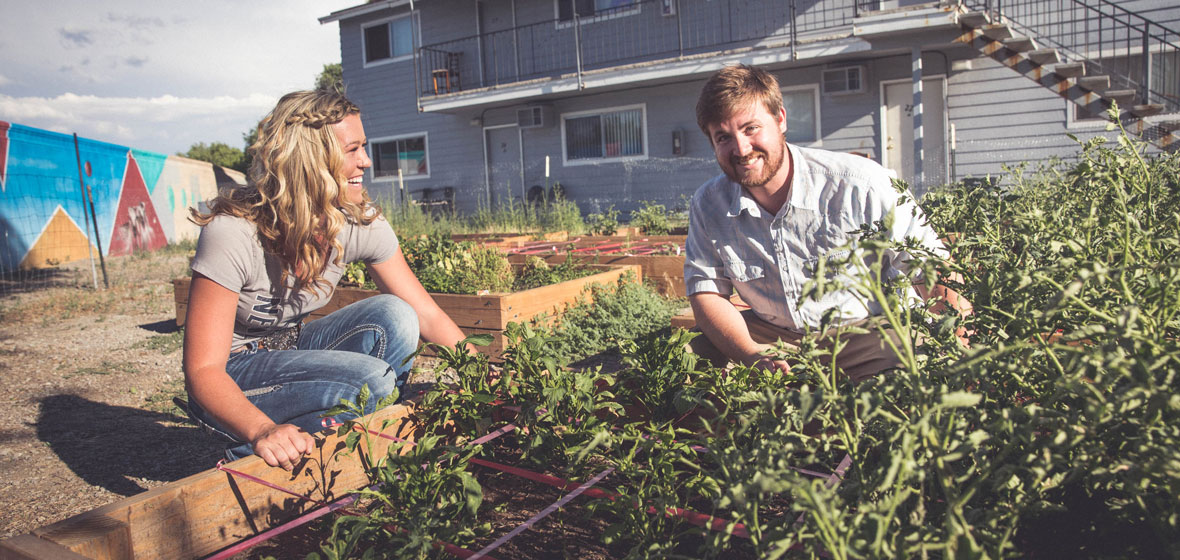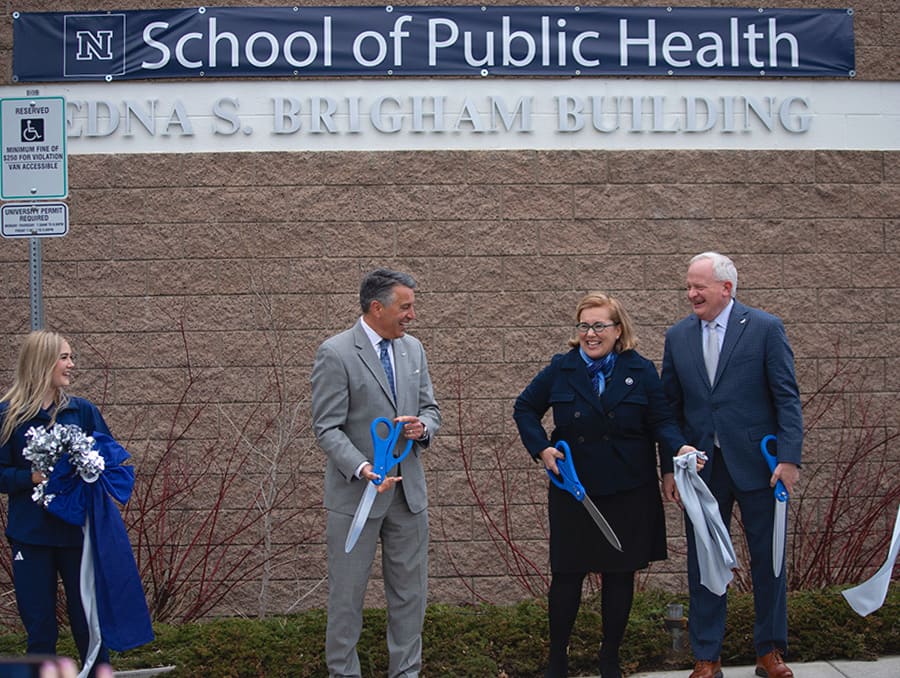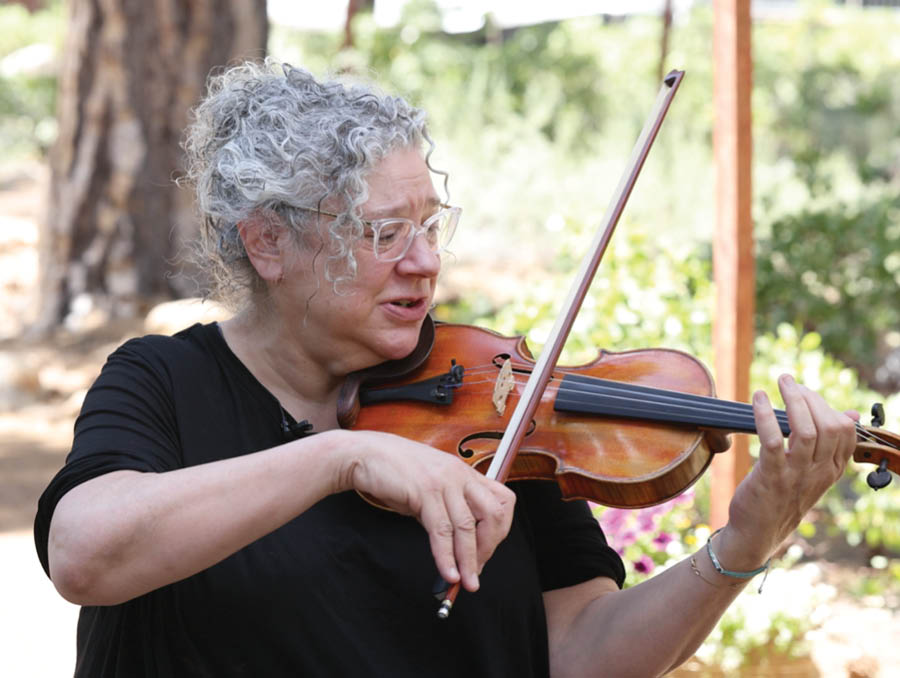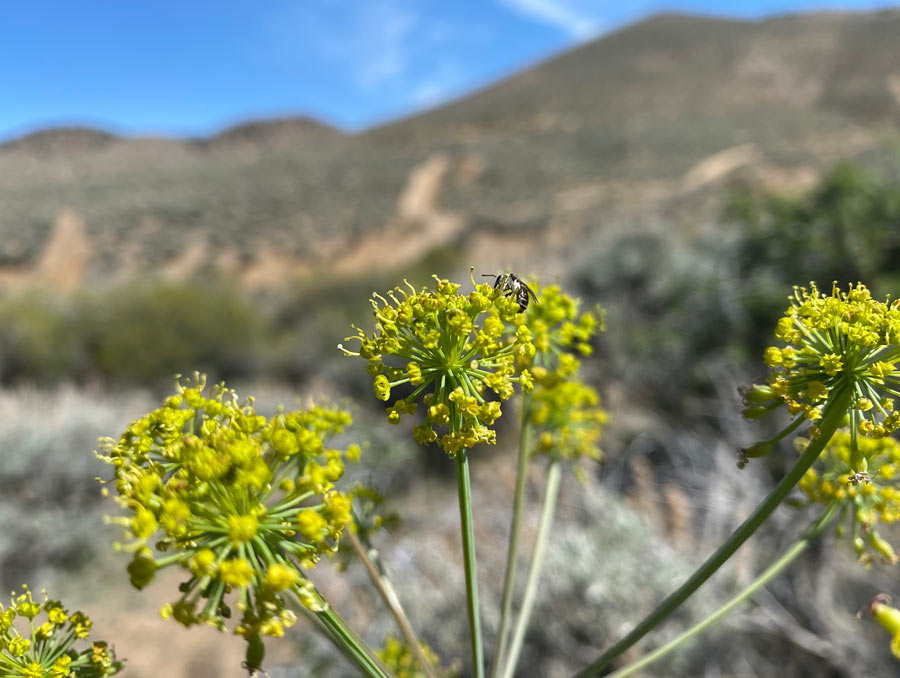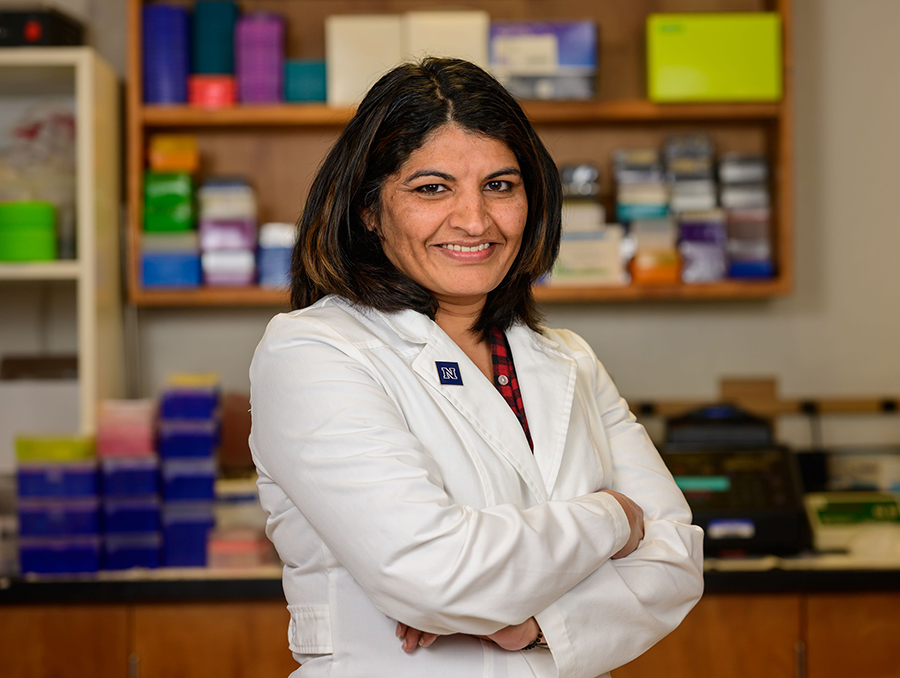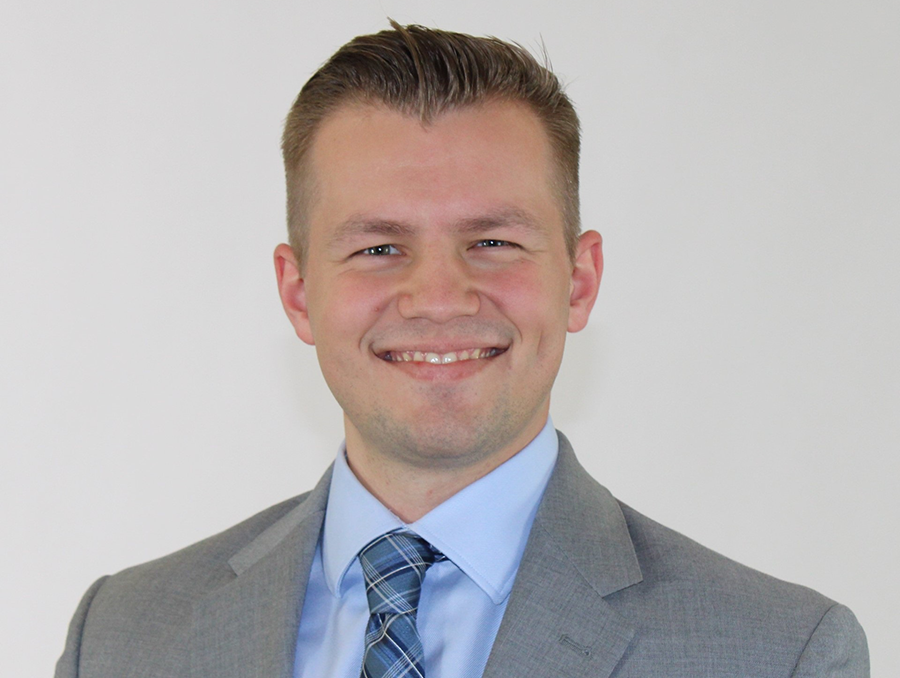Everyone has a connection to food. From the mountains of Afghanistan to the deserts of Syria to the tropics of the Congo - food from all of these cultures are brought together at a community garden at a refugee resettlement community in Reno, Nevada. Students from the University of Nevada, Reno became involved with the planning and building of the garden through a service learning project offered through a field methods course in the geography department.
The Northern Nevada International Center has been influential in resettling refugees to the Reno community and partnered with the geography department to build the community garden. Mallory Goodrick, Tom Sanchez, John Phillips and Kevin Sinnott were the four students who took on the project. They worked toward building a sense of community through the garden while promoting relationships between residents and refugees.
"Ultimately, as a geography class we were focused on understanding the importance of something as basic as housing to creating a sense of belonging in a place," said professor of geography Jessie Clark.
Clark teaches the fields methods course which is designed to help students focus on aspects of human geography to study and understand the social world. Geography is an interdisciplinary field with many specializations all connected together by space. Students working on the garden project saw how creating a space with the community garden would serve as a place for building and developing a sense of belonging to the community.
For Mallory Goodrick, her role in interviewing the women and families about the specific plants they would eat in their home country helped her discover how those plants could be grown in the community garden. She also created a "How To" booklet to help instruct them in the planting, harvesting, watering and spacing of the garden.
"I really do have a passion for gardening and growing my own foods so I thought that I could pass that little bit of my own knowledge on," Goodrick said. "A lot of the plants were donated from the original farm that I use to work on."
Tom Sanchez is a recent graduate of the geography department and worked on the design and construction of the garden beds, and took on project management roles throughout the course of the project.
{{RelatedPrograms}}
"I think one of the biggest challenges for me was just being a student and having a full course load," Sanchez said. "Once I pushed over that and moved past the selfishness of needing to get my stuff done it ended up feeling very rewarding to give up that time."
Another aspect of the service learning project that opened students' eyes to the experience of the refugees was taking public transport for a day. From the University's campus to the community garden they saw with their own eyes how the people moved around the city without a car.
When the day came to build the garden, all of the families came to help install the garden boxes and put the fencing in. It was a very active day with men, women and kids lending a hand to put the project together.
"The families' involvement was one of the most important things about this project," Goodrick said. "It gives them a tie to their home and gives them a responsibility that this is theirs and this is their work."
Through the community garden project, students brought the study of geography from the classroom and into the community. Finding a connection on and off campus helped students realize that they are more than just students and are part of the community just like the refugees.
"We are here as Reno citizens so it's kind of our responsibility to make sure that our other citizens are comfortable as well," Goodrick said.
